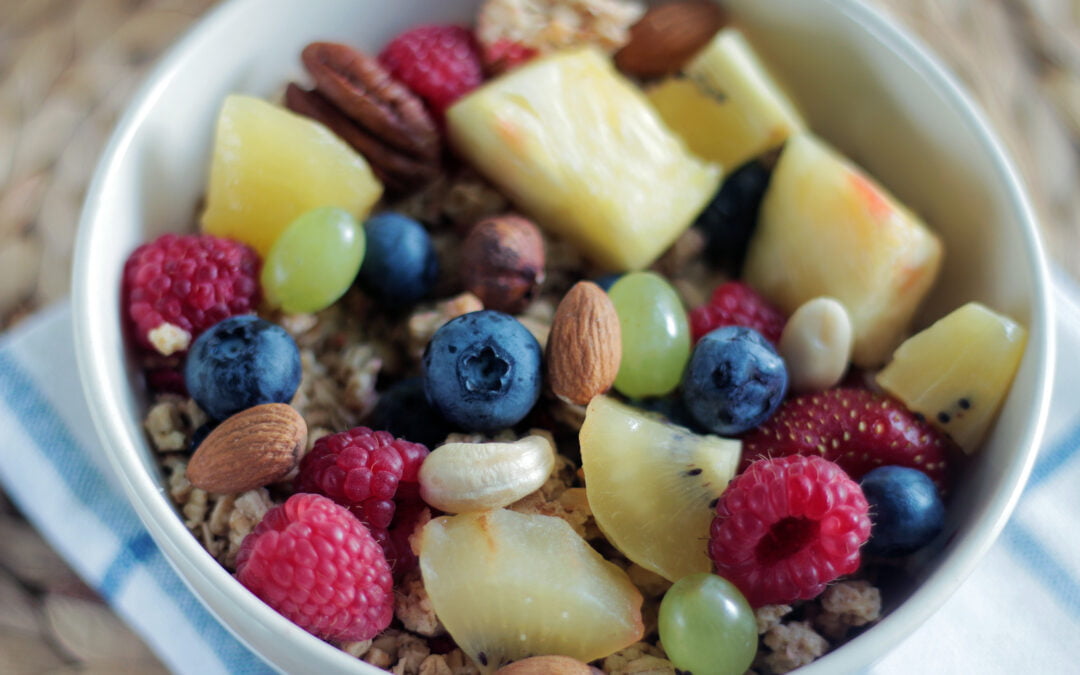For morning exercisers breakfast also doubles up as recovery from your training session and is key time for you to recover and refuel the body. This helps you to get fitter, faster and/or stronger from the hard work you’ve just put in. For afternoon exercisers, breakfast is a good time to start your nutrition preparation for any training you have planned for later in the day.
Beyond exercise recovery, eating breakfast also helps you to perform at your best at work or school. Eating breakfast can prevent fatigue and avoid slumps in energy levels over the day. Breakfast eaters often have better levels of concentration over the day. Frequently, people who skip breakfast make up for this meal by over-eating later in the day or grazing on less healthy choices as a ‘quick fix’ for low energy levels which can make it challenging to achieve physique goals.
What makes up an ideal breakfast to perform?
Quality Carbohydrates for:
- Fuelling the muscles and brain
- Regulating blood sugar levels and appetite hormones
- Growth & development, especially important for active adolescents
Lean protein for:
- Building and maintaining lean muscle mass
- Regulating appetite and satiety over the day
- Managing body fat levels
Assorted fruit or vegetables for:
- Supporting immune function
- Digestive and gut health
- Managing appetite and energy intake
Nutritious breakfast options
These examples all provide quality carbohydrate, lean protein as well as some fruit or vegetables. There really is no excuse for skipping breakfast with so many nutritious options available, even if you’re on the go. Here’s some ideas to get you started:
In a hurry:
- Fruit smoothie with oats
- Individual sweet potato and pea frittatas
- Bircher muesli topped with fresh or frozen berries
- Chia pudding with fresh fruit and mixed nuts
Time to sit at the table:
- Porridge with stewed fruit and walnuts
- Breakfast wrap – scrambled eggs, rocket & tomato in a grain tortilla
- Fruit toast with ricotta, sliced banana and a drizzle of honey
- English muffins cheese, ham sliced tomato and baby spinach
At the café:
- Avocado on toast with feta and latte
- Muesli with yoghurt and fruit salad
- Poached eggs on toast with a side of grilled tomatoes and mushrooms
- Corn or zucchini fritters with smoked salmon
How much do I need eat at breakfast?
Like all areas of sports nutrition, there’s no one size fits all answer to portion sizes. The amount of food you need to eat a breakfast depends on a number of factors including body size, the amount of exercise you do, any training, competition or body composition goals as well as specific medical conditions or food allergies. To work out the best plan for you, it’s best to make an appointment with our TSMC Sports Dietitian to tailor an individual plan to meet your specific situation.
